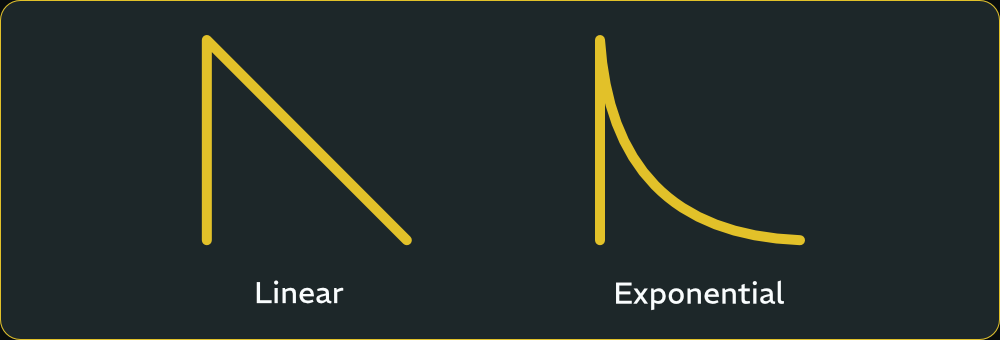A Voltage-Controlled Amplifier (VCA) is a module that varies the amplitude of an incoming signal based on a control voltage. This control voltage can modulate either audio or another control voltage. Most VCAs are linear, meaning they respond to modulation by increasing or decreasing at the same rate and shape as the modulating signal. In contrast, exponential VCAs respond at an exponentially multiplied rate. For example, if the modulating signal is a falling ramp, a linear VCA will also fall at that rate, while an exponential VCA will fall at a continuously faster multiplied rate. This exponential response results in a doubling of the rate of fall if the exponent is roughly 2. The resulting shapes are depicted in the chart below.

For this reason, when you are modulating CV, linear VCAs are more commonly used because the result is simply an amplitude controlled duplicate of the incoming signal. In other words, if you want to cv control a sine wave LFO and retain the shape of the sine wave while varying the level, you should use a linear VCA.
As a final personal note, I only use linear VCAs because almost all of my envelopes are variable between linear and exponential. If one were to use an exponential envelope for the modulation signal on an exponential VCA they would effectively be increasing the rate of of multiplcation by another rate of multiplication. For example (N2)2.



